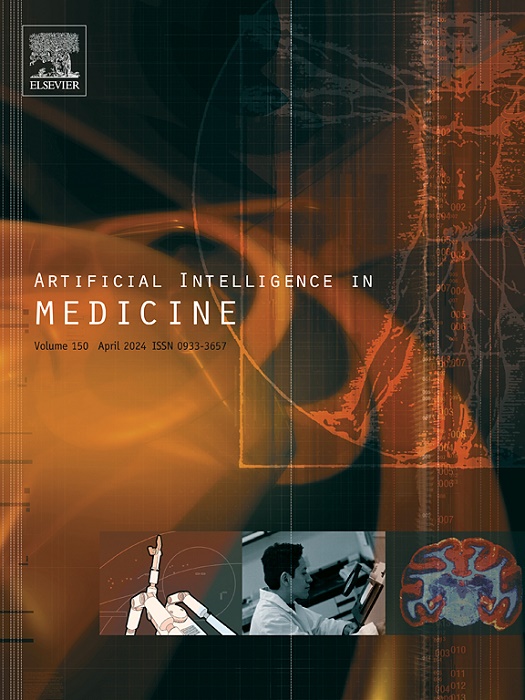生物医学中大型语言模型研究综述。
IF 6.2
2区 医学
Q1 COMPUTER SCIENCE, ARTIFICIAL INTELLIGENCE
引用次数: 0
摘要
大型语言模型(llm)的最新突破提供了前所未有的自然语言理解和生成能力。然而,现有的关于生物医学法学硕士的调查往往集中在特定的应用或模型架构上,缺乏整合各个生物医学领域最新进展的全面分析。本综述基于对来自PubMed、Web of Science和arXiv等数据库的484篇出版物的分析,对生物医学法学硕士的现状、应用、挑战和前景进行了深入研究,重点关注这些模型在现实世界生物医学背景下的实际意义。首先,我们通过137项关键研究的见解,探索法学硕士在广泛的生物医学任务中零学习的能力,包括诊断辅助、药物发现和个性化医疗等。然后,我们讨论了llm的适应策略,包括单模态和多模态llm的微调方法,以提高其在零射击无法实现的专业生物医学环境中的性能,例如医学问题回答和生物医学文献的有效处理。最后,我们讨论了法学硕士在生物医学领域面临的挑战,包括数据隐私问题、有限的模型可解释性、数据集质量问题、由于生物医学数据的敏感性而导致的伦理问题、对高度可靠的模型输出的需求以及在医疗保健中部署人工智能的伦理影响。为了应对这些挑战,我们还确定了生物医学法学硕士未来的研究方向,包括保护数据隐私的联邦学习方法和集成可解释的人工智能方法,以提高法学硕士的透明度。随着法学硕士这一领域的迅速发展,持续的研究和开发对于充分利用法学硕士在生物医学领域的能力,同时确保其负责任和有效的部署至关重要。本文章由计算机程序翻译,如有差异,请以英文原文为准。
A survey for large language models in biomedicine
Recent breakthroughs in large language models (LLMs) offer unprecedented natural language understanding and generation capabilities. However, existing surveys on LLMs in biomedicine often focus on specific applications or model architectures, lacking a comprehensive analysis that integrates the latest advancements across various biomedical domains. This review, based on an analysis of 484 publications sourced from databases including PubMed, Web of Science, and arXiv, provides an in-depth examination of the current landscape, applications, challenges, and prospects of LLMs in biomedicine, distinguishing itself by focusing on the practical implications of these models in real-world biomedical contexts. Firstly, we explore the capabilities of LLMs in zero-shot learning across a broad spectrum of biomedical tasks, including diagnostic assistance, drug discovery, and personalized medicine, among others, with insights drawn from 137 key studies. Then, we discuss adaptation strategies of LLMs, including fine-tuning methods for both uni-modal and multi-modal LLMs to enhance their performance in specialized biomedical contexts where zero-shot fails to achieve, such as medical question answering and efficient processing of biomedical literature. Finally, we discuss the challenges that LLMs face in the biomedicine domain including data privacy concerns, limited model interpretability, issues with dataset quality, and ethics due to the sensitive nature of biomedical data, the need for highly reliable model outputs, and the ethical implications of deploying AI in healthcare. To address these challenges, we also identify future research directions of LLM in biomedicine including federated learning methods to preserve data privacy and integrating explainable AI methodologies to enhance the transparency of LLMs. As this field of LLM rapidly evolves, continued research and development are essential to fully harness the capabilities of LLMs in biomedicine while ensuring their responsible and effective deployment.
求助全文
通过发布文献求助,成功后即可免费获取论文全文。
去求助
来源期刊

Artificial Intelligence in Medicine
工程技术-工程:生物医学
CiteScore
15.00
自引率
2.70%
发文量
143
审稿时长
6.3 months
期刊介绍:
Artificial Intelligence in Medicine publishes original articles from a wide variety of interdisciplinary perspectives concerning the theory and practice of artificial intelligence (AI) in medicine, medically-oriented human biology, and health care.
Artificial intelligence in medicine may be characterized as the scientific discipline pertaining to research studies, projects, and applications that aim at supporting decision-based medical tasks through knowledge- and/or data-intensive computer-based solutions that ultimately support and improve the performance of a human care provider.
 求助内容:
求助内容: 应助结果提醒方式:
应助结果提醒方式:


